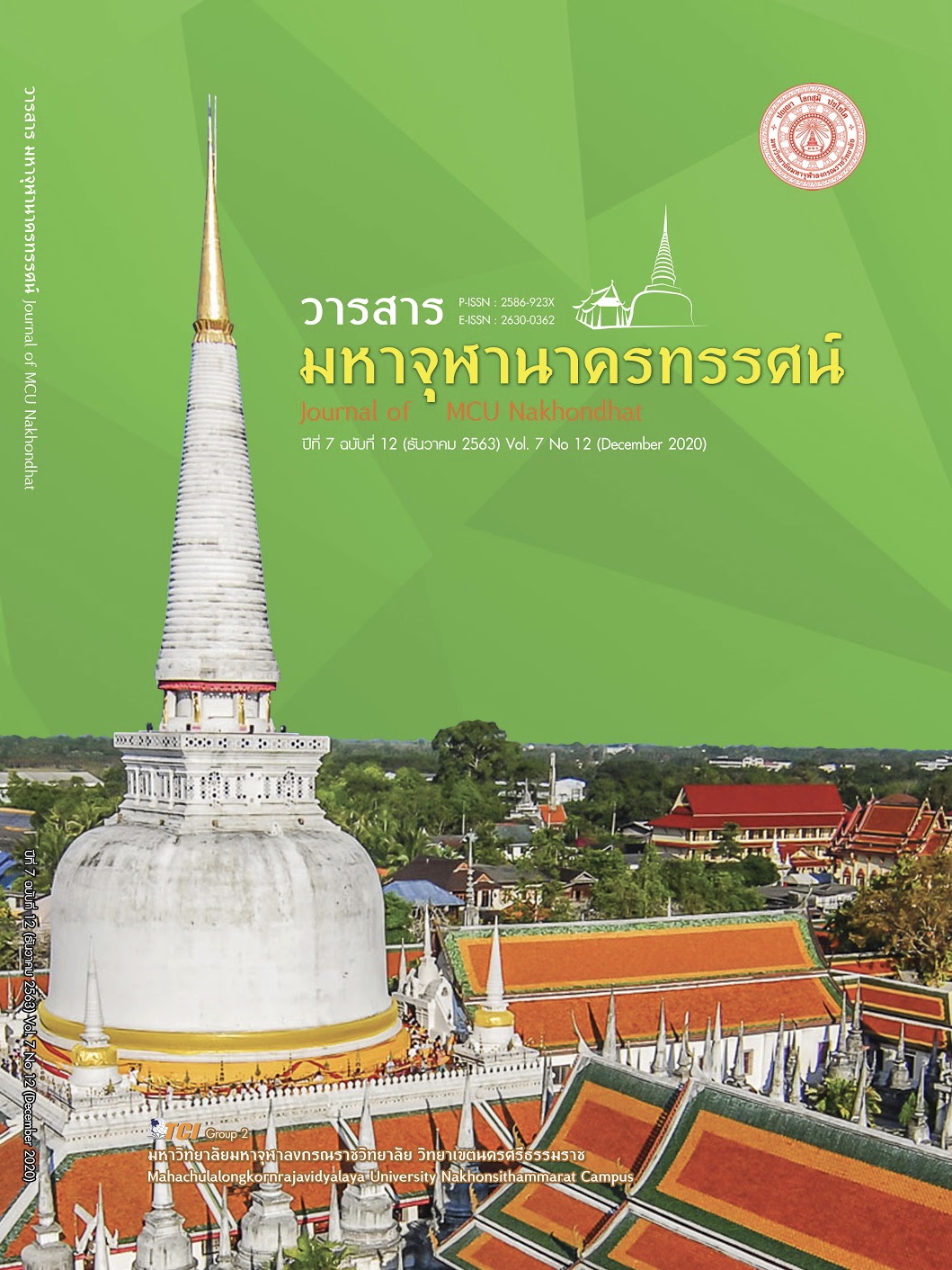LANGUAGE STYLES IN FOLK LITERARY OF ISAN, KLONLAM
Main Article Content
Abstract
This article aims to analyze language styles presentation and analysis of linguistic features in the creation of folk literatury of Isan, klonlam. In terms of the data used for this study, there are 6 sets of Isan literary books, 23 stories by the researcher who applied the conceptual framework of Martin Jose's literary style, which divided the form of Language Style into 5 levels and applied the conceptual framework of aesthetics in words and texts of Duangmon Jitchamnong and Jitrada Suwattikul is the conceptual framework used in the research. The results of the research of Language Styles in Fork Literary of Isan, Klonlam were found that The frozen style are found in the poems of the Fork Literary of Isan Klonlam 14 stories. But the Fomal style, consultative style, casual style and intimate style Will be found in every story that has been analyzed in Language Styles in Fork Literary of Isan, Klonlam. But Language Styles in Aesthetics in terms of words according to the conceptual framework included 6 issues: 1) rhyme style, i.e. sound, rhyme, both consonants and vowels, 2) Reduplication style, 3) repeating style, 4) dialect style, 5) different words style and 6) other styles, which give the reader a variety of styles in the thoughts of word and sound form. In the texts style was found that The author used 3 styles to using language aimed to creating beauty in figure of speech, namely; metaphors, hyperbole, Onomatopoeia, Personification, and other figure of speechs. In terms of style, all four styles of language were used, namely; narrative, descriptive, sermons, and eloquence. In the feeling of Thai literature, it was found that there were all four feelings, namely; praise feeling, love feeling, angry feeling and sad feeling.
Article Details
References
กอบกุล อิงคนนท์. (2546). ศัพท์วรรณกรรม. กรุงเทพมหานคร: สำนักพิมพ์ษรฉัตร.
กาญจนา ปราบปัญจะ. (2553). การศึกษาลีลาการใช้ภาษาและกลวิธีการเขียนของ ว.วชิรเมธี. ใน วิทยานิพนธ์ศิลปศาสตรมหาบัณฑิต สาขาวิชาภาษาไทย. มหาวิทยาลัยศรีนครินทรวิโรฒ.
ขวัญใจ บุญคุ้ม. (2559). วัจนลีลาและบทบาทหน้าที่ของเพลงลูกทุ่ง. ใน วิทยานิพนธ์ศิลปศาสตรมหาบัณฑิต สาขาวิชาภาษาไทย. มหาวิทยาลัยราชภัฏเชียงใหม่.
จารุวรรณ ธรรมวัตร. (2543). ภูมิปัญญาอีสาน. (พิมพ์ครั้งที่ 3). มหาสารคาม: โครงการตำราคณะมนุษยศาสตร์และสังคมศาสตร์ มหาวิทยาลัยมหาสารคาม.
จิตรลดา สุวัตถิกุล. (2538). วรรณคดีวิจารณ์แนวสุนทรียศาสตร์. ใน เอกสารการสอนชุดวิชาภาษาไทย 7 วรรณคดีวิจารณ์สำหรับครู. มหาวิทยาลัยสุโขทัยธรรมาธิราช.
ดวงมน จิตร์จำนงค์. (2541). สุนทรียภาพในภาษาไทย. (พิมพ์ครั้งที่ 3). กรุงเทพมหานคร: ศยาม.
รังสรรค์ จันต๊ะ. (2541). การใช้วัจนลีลาและธัมมวัจนโวหารล้านนาของพระสงฆ์ภาคเหนือ. ใน รายงานการวิจัย. มหาวิทยาลัยแม่โจ้.
ราชบัณฑิตยสถาน. (2556). พจนานุกรม ฉบับราชบัณฑิตยสถาน พ.ศ. 2554. (พิมพ์ครั้งที่ 2). กรุงเทพมหานคร: นามมีบุ๊คส์พับลิเคชั่นส์ จำกัด.
วีระ สุดสังข์. (2526). หมอลําศิลปวรรณคดีอีสาน. ครูไทย, 28(1), 60-69.
สมเกียรติ รักษ์มณี. (2551). ภาษาวรรณศิลป์. (พิมพ์ครั้งที่ 3). กรุงเทพมหานคร: สายน้ำใจ.
Joos, Martin. (1961). The Five Clocks: a Linguistic Excursion into the Five Styles of English Usage. New York: Harcourt, Brace and World.


